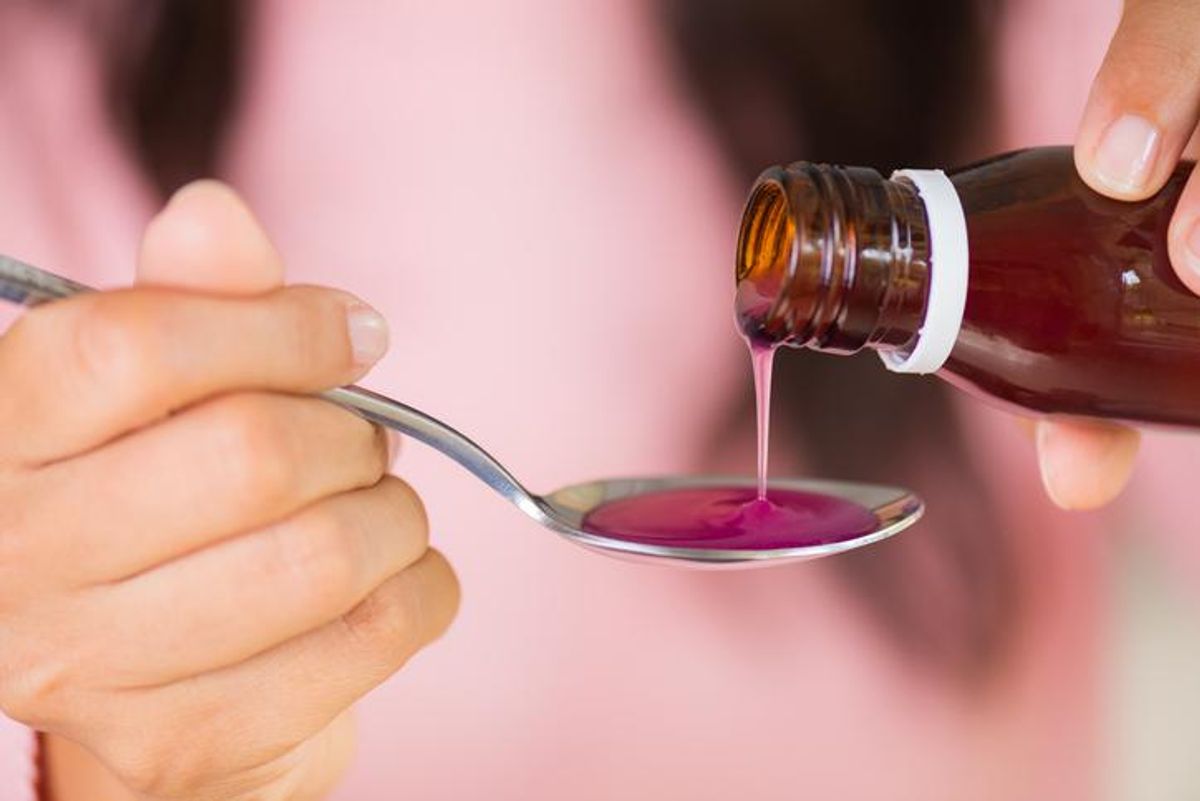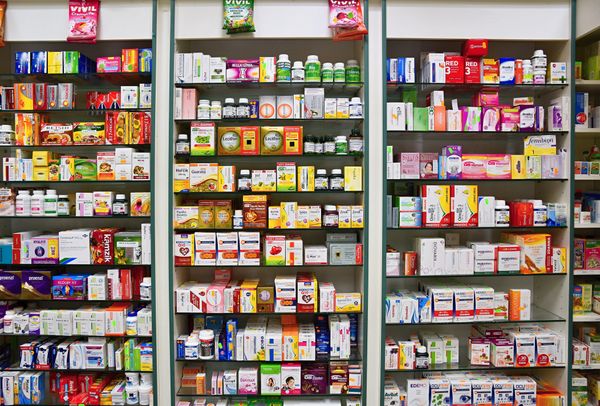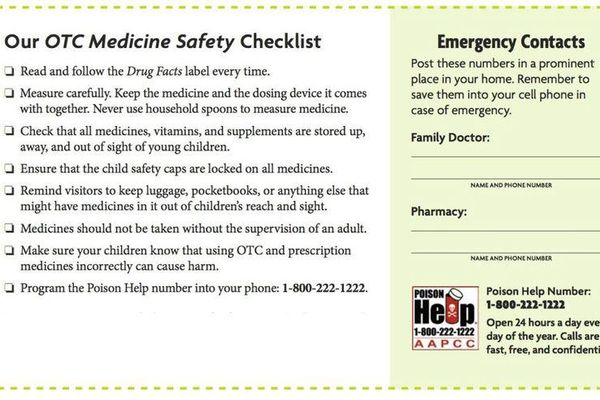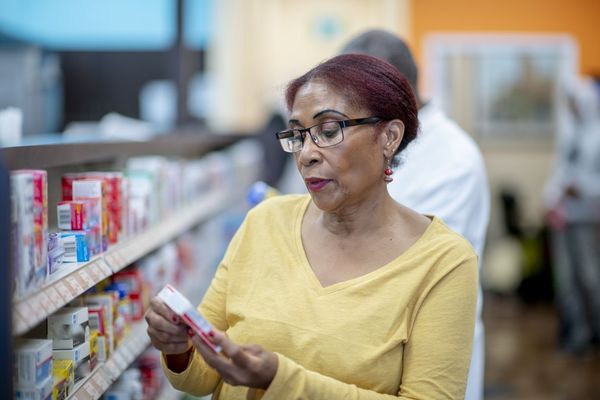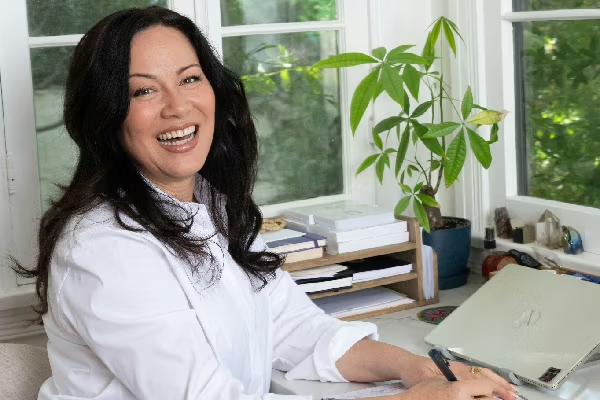Q:
How do I know if it's OK to give my child more than one over-the-counter medicine at the same time?
A:
Checking the active ingredients on the Drug Facts label is a good starting point. It's important not to give your child two or more medicines with the same active ingredient. This can lead to an overdose or other problems.
Sometimes it's fine to give your child more than one over-the-counter (OTC) medicine since different medicines may be needed to treat different symptoms. For example, if your child has a cold, she may need ibuprofen or acetaminophen to control her fever, a decongestant for her runny nose and cough medicine to control a cough. But this example is also a classic case of when you need to be careful, because more medications mean a greater risk for potential side effects.
If you give your child a cold medicine, it may already include active ingredients to control fever, congestion and a cough. Acetaminophen is often used in cold medications, as well as in medicines to reduce pain or fever, so you wouldn't want to give your child two medications containing acetaminophen.
Choose medications wisely. Look for one that treats only what's needed. There's no need to give a medication containing multiple active ingredients if your child only has one symptom, such as a cough.
Always read all of the information on the Drug Facts label that accompanies OTC medicines because it includes important warnings in addition to the directions for how to administer the product properly. The label also lists the active ingredients in the medicine, along with proper dosage and other important information.
If you have any questions about medicines—either OTC or prescription—contact your local health care professional (doctor, nurse or pharmacist). If no one is available, such as late at night, and you need an immediate answer, you can call the Poison Control Center with both emergency and non-emergency medical questions. The Poison Control Center is available 24 hours a day, 365 days a year. The Poison Control Center staff consists of nurses, physicians and pharmacists with specialized poison center training, and there is always a toxicologist on call. Program that number into your phone so it's readily available: 800-222-1222. Every call is free and private.

